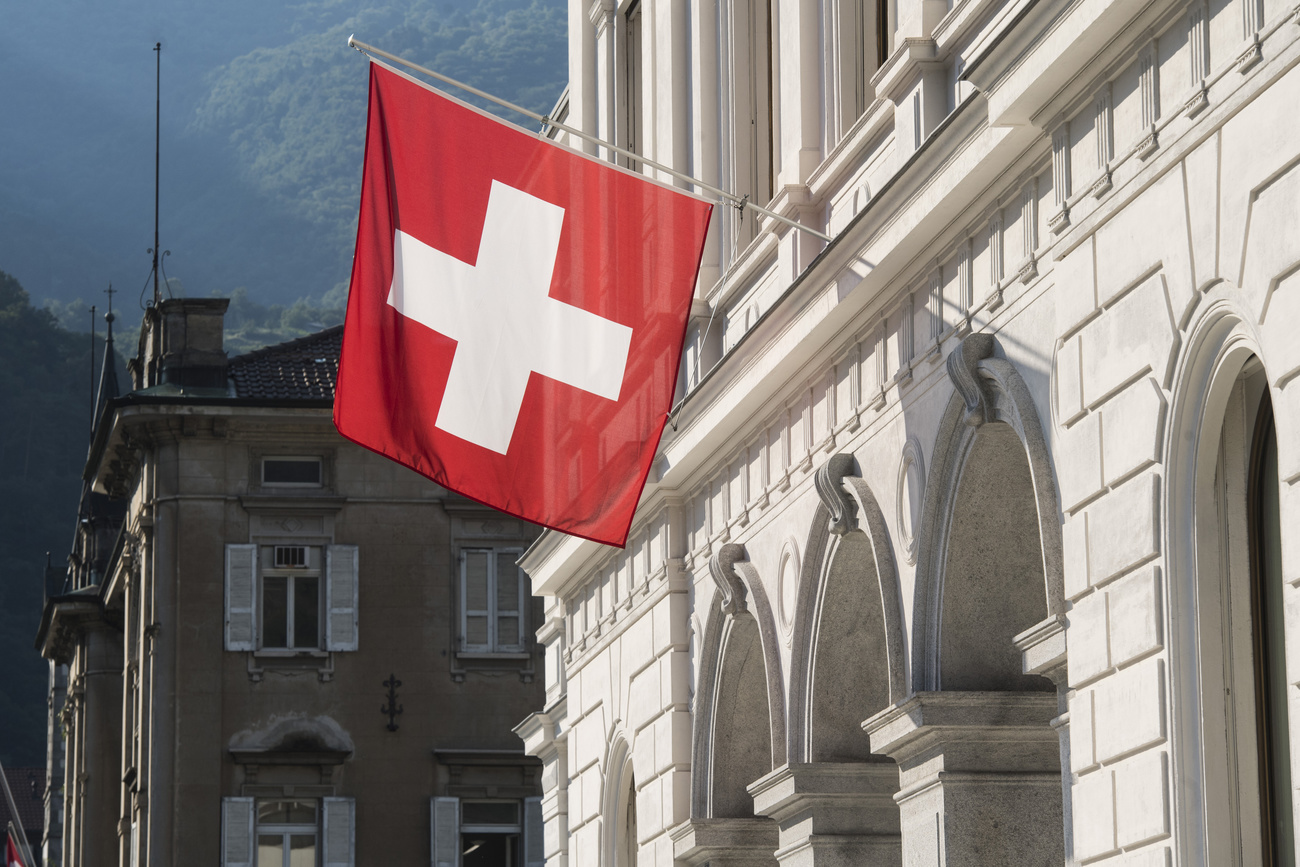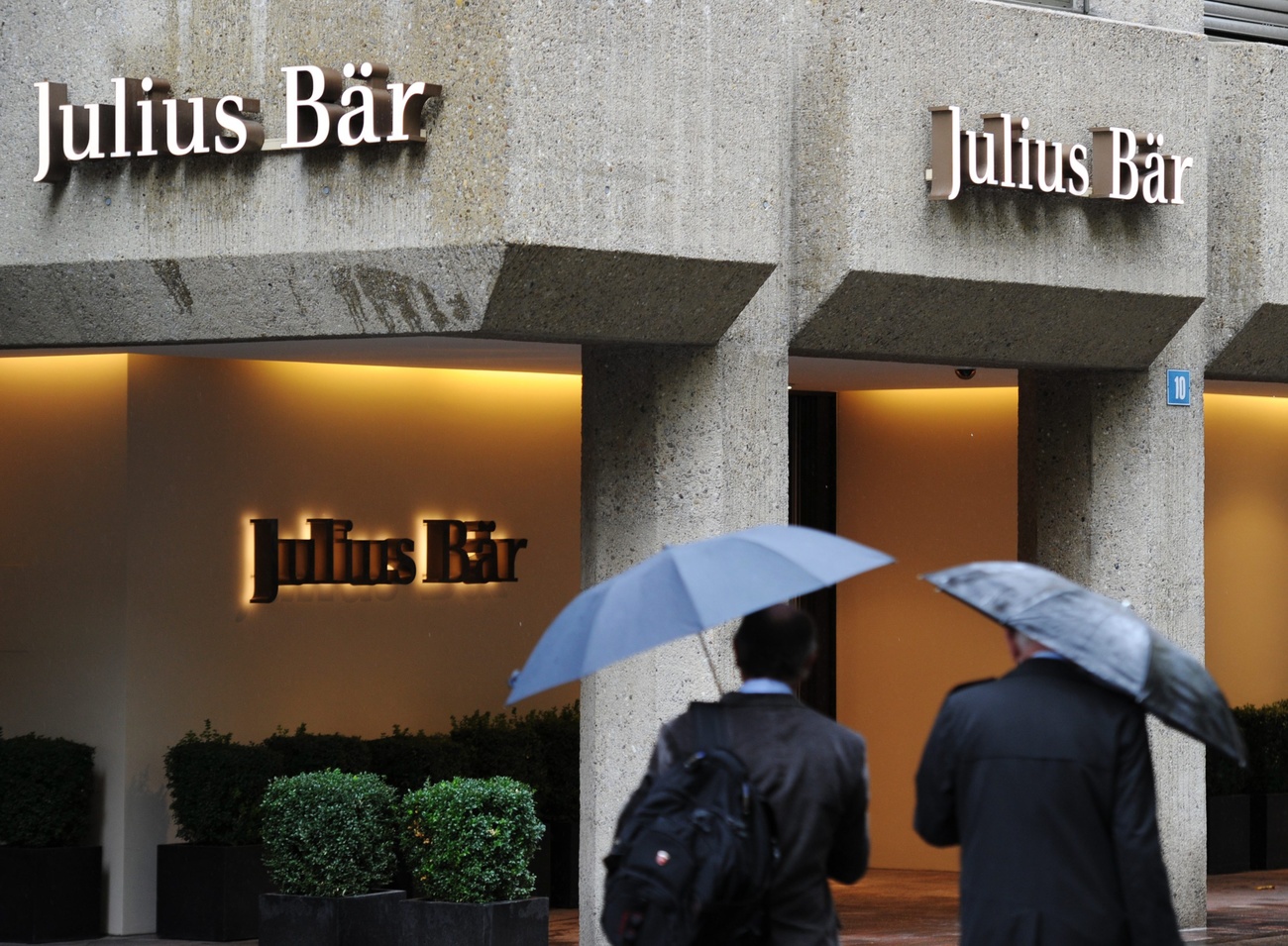Switzerland stumbles in anti-corruption ranking

Switzerland is perceived as a relatively “clean” country when it comes to public sector corruption but on balance it could do more to eradicate the practice, says financial watchdog Transparency International. The Swiss public sector is seen as especially vulnerable to nepotism while the private sector is criticised for enabling corruption and money laundering.
The Alpine nation performed well overall in the NGO’s 2021 Corruption Perceptions Index – although it slipped from third to seventh place by scoring one point less than in 2020. “In the fight against corruption in the public sector, Switzerland is once again far from faultless and is even being outperformed by other countries,” says Martin Hilti, director of Transparency International Switzerland.
Launched in 1995, the index measures “perceived vulnerability to corruption” rather than actual corruption cases drawing on insights from the business and scientific community. This year the top countries – perceived as the least prone to corruption – are Denmark, Finland and New Zealand. Norway, Singapore and Sweden also outperformed Switzerland. The Netherlands, Luxembourg and Germany completed the top 10.
The conflict-torn nations of South Sudan, Syria and Somalia received bottom marks. Transparency International concludes that the control of corruption has stagnated or worsened in 86% of countries in the past decade. It notes that 27 countries – including Switzerland – received the lowest scored they had achieved since the earliest comparable year of available data (2012).
Switzerland saw several public sector scandals make waves over the past year. One of the largest concerned overpriced IT contracts that culminated in a four-year prison sentence for a former official of the State Secretariat of Economic Affairs.
Conflicts of interest
What worries Hilti the most, is the sector’s vulnerability to nepotism and frequent failures to recognize clear conflicts of interest. A classic case in point is the commune of Arosa, a popular ski destination in the canton of Graubünden. Local politicians have regularly received a free ski pass worth CHF550 – and publicly defended the practice although such actions are clearly problematic, he says.
“The main problem we have is nepotism,” he told SWI swissinfo.ch. “Switzerland is a small country, we know each other, we went to school together. Men went to military service together, are in the same sports clubs and then, suddenly, they find themselves in the professional context. The Swiss too often lack the sensibility and the knowledge to deal with these situations: often this implies a conflict of interest.”
Even if most of such situations, he notes, do not reach the threshold of criminal liability, they are still very problematic since they involve a misuse of power and damage the integrity of the public officials.
Private sector woes
Switzerland’s most serious shortcomings fall in areas the index does not measure, according to Hilti. He highlights the fight against money laundering, the regulation and transparency of political lobbying, and the protection of whistle-blowers as areas in need of urgent improvement.
“The main problems that we have in Switzerland are located in the private sector,” he says.
The challenge in the private sector, dominated by small and medium sized companies (SMEs), is that many don’t know what corruption is or how to face it. Large companies, meanwhile, have the codes of conduct but struggle to lock down a company-wide culture of zero tolerance.
“We have some sectors with higher risk such as the whole financial sector,” he adds. “There is money laundering, corruption. And next to the financial sector we have the whole enabling industry in Switzerland.”
The enabling industry refers to lawyers, notaries, and real estate agents who are helping criminals to invest their illegal money or hide it, i.e., by placing it in shell companies. Advising a client to place money in a particular financial institution or country is not covered by the Swiss Anti-Money Laundering Act as long as the person providing the advice does not have direct access to the funds, he notes.
Switzerland is also home to key players of the pharmaceutical and extractive industry, as well as international sports associations. “These are all subject to enhanced corruption risks,” says the expert.
Some recent examples include Basel-based Novartis paying $729 million (CHF688 million) to settle bribery cases in the United States and Greece in 2020 or Zurich-based bank Julius Baer admitting to laundering over $36 million in bribes in a FIFA case last year.External link Embroiled in a Mozambique “tuna bonds” corruption scandal, Credit Suisse entered a delayed prosecution deal with the United States in October 2021.
Scandals such as the Panama Papers and Pandora Papers, he argues, have shown that Switzerland needs a more robust anti-money laundering and anti-corruption strategy. But efforts to beef up the laws have encountered strong headwinds. All the same regarding a better legal protection of whistleblowers.
“Our anti-money laundering laws are improved only if the international pressure is so high that we really need to act but then we do the minimum necessary,” he says.

In compliance with the JTI standards
More: SWI swissinfo.ch certified by the Journalism Trust Initiative














You can find an overview of ongoing debates with our journalists here . Please join us!
If you want to start a conversation about a topic raised in this article or want to report factual errors, email us at english@swissinfo.ch.